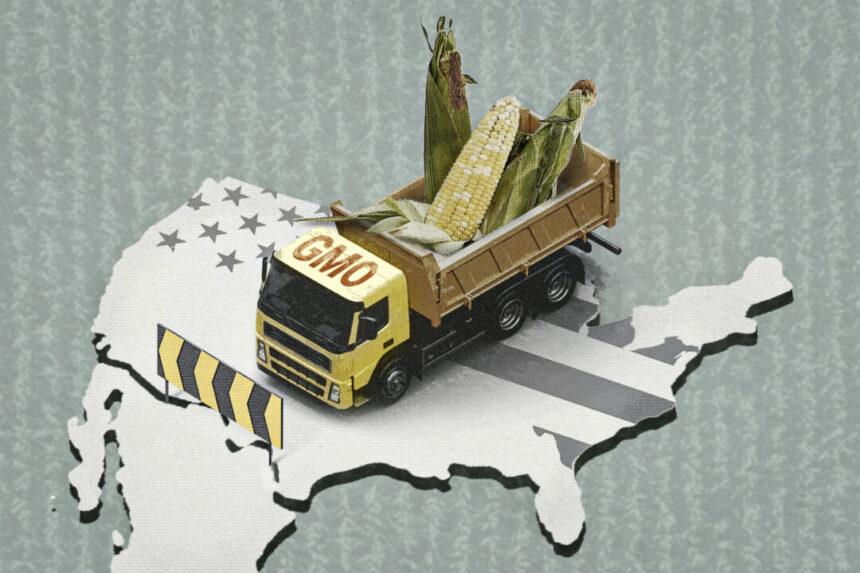Mexico’s decision to ban genetically modified corn is causing a trade dispute with the United States and Canada over concerns about the safety of GM corn. The dispute could have significant implications for agriculture, as the US argues that GM corn is safe, while Mexico is concerned about potential health risks. The US has been working to force GM corn into Mexico, but Mexico has banned GM corn in tortillas and dough and plans to gradually replace it in all foods. The US-Mexico-Canada Agreement (USMCA) trade panel is now involved in resolving the disagreement. Mexico has provided evidence of health risks associated with GM corn and glyphosate, the key ingredient in RoundUp, which is closely linked to GM corn. The dispute highlights conflicting values and interests, as Mexico aims to protect public health and Indigenous maize, while the US seeks to protect American farmers and promote agricultural biotechnology. The decision of the USMCA panel will have significant implications for the future of agriculture and could generate cultural and environmental shockwaves. The authors concluded that further investigation is needed on these relationships. Research conducted in Mexico has discovered glyphosate in the urine of children and adults, as well as evidence of it in industrial and native foods. Mexico has expressed dissatisfaction with the scientific evidence cited by the United States during negotiations, raising concerns about the lack of long-term studies on humans consuming GM corn. There was a proposal for a joint study on the health impacts of GM corn, which the United States declined. Several non-governmental organizations have presented their perspectives to the trade panel, with the Center for Food Safety questioning the trustworthiness of the U.S. regulatory system. The United States continues to assert that GM safety has been proven, while critics argue that more research is needed. Despite the debate surrounding GM corn, experts emphasize that countries have the right to determine what technologies are allowed within their borders. Toxic residues are said to be increasing on farms since the introduction of GM seeds, prompting calls for more thorough research on the technology. The issue of genetically modified (GM) crops has not received much attention in the past 15 years, according to a report by Mr. Benbrook for Friends of the Earth. The report highlighted concerns about the safety assessments conducted up to 30 years ago, urging Mexico to be cautious about allowing its people to be part of the experiment the U.S. government is pushing for.
The report also pointed out a significant increase in pesticides and toxins used in corn production since the early 1990s, raising concerns about human exposure to these harmful substances. Mr. Benbrook emphasized the lack of scientific evidence supporting the safety of higher levels of exposure to multiple toxins.
Glyphosate, a commonly used herbicide in GM crops, has raised concerns due to its potential to disrupt hormones. Studies have categorized glyphosate as one of the top four most threatening endocrine-disrupting chemicals, with implications for human health and the environment.
Despite conflicting reports on the safety of GM crops, organizations like the U.S. Environmental Protection Agency and the European Food Safety Agency have declared them safe for consumption. However, Mexico’s decision to ban GM imports has sparked a trade dispute, with potential implications for U.S. farmers and consumers.
Critics argue that the U.S. government’s response to Mexico’s decree is politically motivated, prioritizing the interests of the biotech industry over public health and environmental concerns. Mexico’s ban on GM imports could have significant economic consequences, affecting job opportunities and food prices in both countries.
Some experts believe that the U.S. could work with Mexico to find a compromise that benefits both countries, rather than forcing GM crops into the Mexican market. Mexico’s decision to protect its native corn crops aligns with its constitutional duty to safeguard the well-being of its people.
If Mexico prevails in the trade dispute, it could have far-reaching implications for the future of GM crops and agricultural practices. This ruling may lead to a reevaluation of the science behind GM crops and prompt a shift towards more sustainable and environmentally friendly farming practices. Please rewrite this sentence.
Source link






